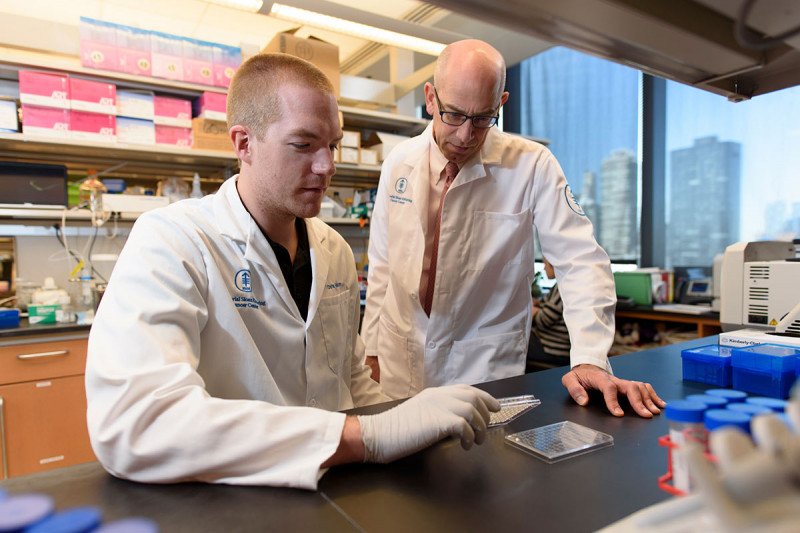

At the American Society of Clinical Oncology (ASCO) Virtual Scientific Program, Memorial Sloan Kettering (MSK) Chief of Thoracic Oncology Service Charles M. Rudin, MD, PhD, will present a study that found pembrolizumab addition to first-line chemotherapy significantly improved progression-free survival for patients with small cell lung cancer (SCLC). The randomized, double-blind, phase III KEYNOTE-604 study, which will be available on-demand for registered virtual attendees starting on Friday, May 29 at ET, compared pembrolizumab plus etoposide and platinum (EP) chemotherapy with placebo plus EP for patients with previously untreated extensive-stage SCLC.
“Although EP results in a high response rate in patients, these responses are very rarely long-lasting,” said Rudin. “More successful, and more durable, first-line treatment options are critically needed. This trial tested whether addition of immune checkpoint blockade with pembrolizumab could improve outcome for patients with metastatic SCLC.”
Dr. Rudin and colleagues found that pembrolizumab + EP significantly improved progression-free survival compared with placebo + EP as first-line therapy for patients with extensive-stage SCLC. Twelve-month progression-free survival estimates were 15.9 percent with pembrolizumab plus EP and 5 percent with placebo plus EP. There was a strong trend for improved overall survival with pembrolizumab as well; estimates for 2-year survival improved from 11.2 to 22.5% with addition of pembrolizumab. No unexpected toxicities were seen with pembrolizumab + EP.
These data support the benefit of utilizing pembrolizumab in treatment regimens for patients with extensive-stage SCLC. More information about the methods, results and, conclusions can be found in the abstract here.
SCLC is an aggressive cancer strongly associated with tobacco use that accounts for approximately 15 percent of all lung cancers. SCLC is characterized by rapid tumor growth, and approximately two thirds of patients have metastatic disease at diagnosis. This study adds to the growing evidence supporting the benefit of immunotherapy for patients with this disease.

